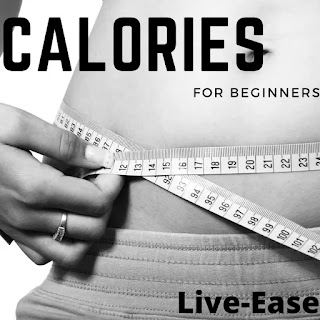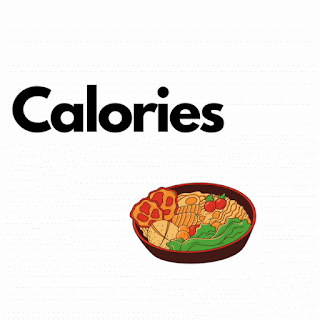Firstly, what is a calorie?
A calorie is a unit of energy used in measurement. Calories are the calculated amount of heat or energy consumed by body by eating a specific kind of food.
The calories are basically necessary
for the human body in order to perform metabolic activities and run the cell
functionality.
But when took in high amounts, it could
give risk of various diseases in human body.
How much calories per day are necessary?
Calories are essential in a specific amount
for human body to sustain life. When consumed in high amounts the extra
calories get stored in the body in the form of stored fats, which are used when
required, in the scarcity of food intake.
Also Read : Do you want flat belly? Here is 3 tips for weight loss.
The quantity of calories should be consumed o daily basis depends on several factors listed below:
·
Metabolic activity performed by
body daily.
·
Gender of person, as women
needs fewer calories as compared to men.
·
Height of individual.
·
Weight of individual.
·
Age of the person, as children
does not need to have many calories on contrary of adults.
· Suffered of some disease.
A daily recommendable calorie for the consumption of an adult is approximately 1600 – 3000 calories / day.
What are empty calories?
The types of foods or drinks we consume mostly do not contain any
nutritional value and are just digested by our stomachs to satisfy the tongue
for taste. These little or non-nutritional benefits are called as empty
calories. They could be in the form of added sugars or saturated and Trans
fats.
They are also referred as discretionary calories.
Here is a list for empty calories per day could be taken by human body and don’t prove to be harmful:
|
Individual |
Age
group |
Calories/day |
|
Children |
2 –
8 years old |
120 cal/day |
|
Children |
9 –
13 years old |
120 -250 cal/day |
|
Girls |
14
– 18 years old |
120 -250 cal/day |
|
Boys |
14
– 18 years old |
160 -330 cal/day |
|
Adult women |
18
+ |
120 -250 cal/day |
|
Adult men |
18
+ |
160 -330 cal/day |
The added sugars in the packed foods from outside are just the
sweeteners which add taste to them nad nothing more than that.
Food items which have empty calories in them are:
Ice cream, pastries, cookies, cakes, sports drinks, soda, energy drinks, sausages, cheese, pizza and other all kind of junk foods.
Also read: 7 common mistakes resulting dark circles
Which nutrient has high calorie content?
While eating food we take up a lot of nutrients, out of which many are micro nutrients that is required in small quantities in body and some are the macro nutrients that are required in large quantities for good metabolism.
Some of the macro nutrients with their providing calories are:
·
Carbohydrates – 4 calorie /
gram.
This type of nutrient is consumed and used on the daily basis in the body.
·
Fats – 9 calorie / gram.
This type of calories is stored in the body in the form of fats which is used at the time of energy need.
·
Proteins – 4 calorie / gram.
These calories are used by the body for building and maintenance of muscle functionality.
While other than them the food items rich in fiber give those kinds
of calories which keep the body satisfied and prevent it from starving.
Also read: Top 10 skin care tips for glowing skin
High and low calorie diet dilemma
Well, calories should be taken in specific amounts which are
required or needed for the human body. The higher amount as well as the low
amount both can cause harmful effects. The excess amounts can’t lead you to be
healthy and fit; similarly the insufficient amounts can’t lead to loss in
weight.
|
Excess of Calories |
Insufficient Calories |
|
Obesity. |
Insomnia. |
|
Inflammation. |
Fatigue. |
|
Mitochondrial
dysfunction. |
Loss
of nutrients. |
|
Stress. |
Gall
stones. |
|
Renal
dysfunction. |
Headache. |
|
Diabetes. |
Nausea. |
|
Insulin
resistance. |
Menstrual issues. |
How to burn calories?
In order to loose the belly fat or the excess of fat stored here and
there in the body, one needs to give their 100%. And this 100% comprises of 70%
food diet which should be balanced and the remaining 30% is the exercise or the
activity of the body.
Foods which can burn or control calories:
1.
Oats
The most superior food counted when calories have to be decreased or burn. The oats contain low fat as well as low calories and thus do not lead to rapid spike in blood sugar levels. And hence don’t favor for calorie spike as well.
2.
Yoghurt
The yoghurt made mostly in all households contains high quantity of proteins and calcium. Thus, necessary for muscle and bone. Yoghurt is significant source of iodine and therefore good for thyroid patients. These nutritional qualities make it valuable for consumption in low calorie diet.
3.
Apple
Apple is highly rich in fibers and low in calories. It also keeps the hunger in control. The ingredient polyphenol present in apples helps in break down of stored fats. Thus works as an energy booster. Well said, AN APPLE A DAY KEEPS DOCTOR AWAY.
4.
Chili pepper
The chilies used as spices in homes have an active ingredient called as capsaicin. This constituent in chili has the ability to boost up the metabolic functions in body.
5.
Coconut oil
The coconut oil also boosts up metabolism due to the presence of medium chain fatty acids. But it has a limitation of usage s it has high calorific value.
6.
Dark chocolate
The real dark chocolate consists of 70% cocoa which has high antioxidants and mono saturated fatty acids. Thus beneficial for reduction of cholesterol levels, heart diseases and stroke as well.
7.
Cinnamon
Cinnamon is a spice more than a food. It has the ability to burn calories through a process called as thermogenesis in which the calories are burnt out to produce heat and get consumed for metabolism.
A healthy and sustainable
rate for reduction of calories lay in the range 500-600 calories /day can lose
1 pound in a week.
A healthy body can fight with any kind of disease, but deficiency or toxicity of any substance are dangerous to sustain a healthy life.
Be Healthy. Be Alive.


